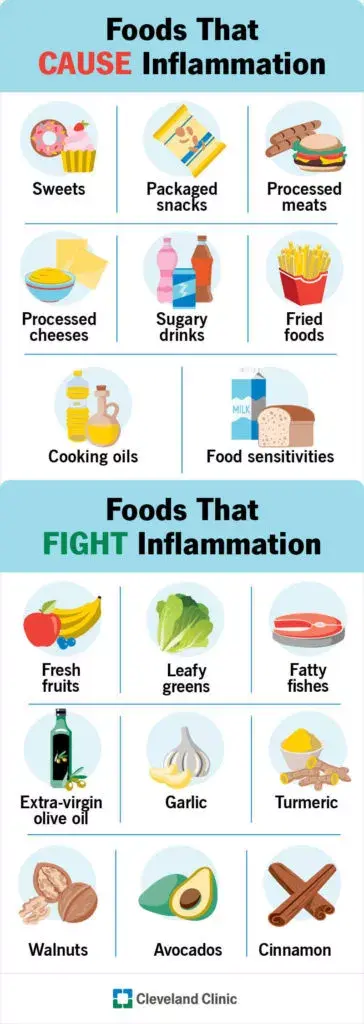Arthritis is a term used to describe inflammation of one or more joints, leading to pain, stiffness, and decreased mobility. There are many types of arthritis, but the two most common are osteoarthritis and rheumatoid arthritis.
What are the two most common types of Arthritis?
- Osteoarthritis (OA): This is the most common form of arthritis, often associated with aging or wear and tear on the joints. In OA, the protective cartilage that cushions the ends of bones wears down over time, leading to pain, swelling, and stiffness in the affected joint. Osteoarthritis can affect any joint but commonly occurs in the hands, knees, hips, and spine.
- Rheumatoid Arthritis (RA): Unlike osteoarthritis, rheumatoid arthritis is an autoimmune disorder in which the body’s immune system mistakenly attacks the synovium, the lining of the membranes that surround the joints. This leads to inflammation, joint damage, and eventually erosion of the bone and cartilage. RA commonly affects the joints in the hands, wrists, and feet and can cause systemic symptoms such as fatigue, fever, and weight loss.
What are the causes of Arthritis?
While the causes of some forms of arthritis are unknown, arthritis can be caused by disease, injury, overuse and genetic predisposition.
What are 8 foods to avoid when you have arthritis?
When managing arthritis, it’s often recommended to avoid certain foods that may exacerbate inflammation or contribute to joint pain. Here are eight foods commonly suggested to avoid:
- Processed Foods: Foods high in processed sugars, refined carbohydrates, and unhealthy fats can contribute to inflammation. These include fast foods, sugary snacks, and processed meats.
- Saturated and Trans Fats: Foods high in saturated and trans fats, such as fried foods, processed snacks, and fatty cuts of meat, can promote inflammation and worsen arthritis symptoms.
- High Sodium Foods: Excessive sodium intake can lead to water retention and inflammation, potentially aggravating arthritis symptoms. Processed foods, canned soups, and salty snacks are common sources of high sodium.
- Nightshade Vegetables: Some individuals with arthritis find that nightshade vegetables like tomatoes, eggplants, peppers, and potatoes can worsen their symptoms. While more research is needed, some believe that certain compounds in these vegetables may contribute to inflammation in susceptible individuals.
- Gluten: For some people with arthritis, particularly those with rheumatoid arthritis, gluten may exacerbate inflammation and joint pain. Gluten is found in wheat, barley, rye, and products made from these grains.
- Dairy Products: Some people with arthritis may find that dairy products worsen their symptoms. While the evidence is mixed, some studies suggest that certain proteins in dairy may contribute to inflammation in susceptible individuals.
- Alcohol: Excessive alcohol consumption can lead to inflammation and may worsen arthritis symptoms. Additionally, alcohol can interact with some medications used to treat arthritis.
- Sugar-Sweetened Beverages: Sugary drinks like sodas and fruit juices can contribute to inflammation and weight gain, which may exacerbate arthritis symptoms. Opting for water, herbal teas, or unsweetened beverages is a better choice.
It’s important to note that individual responses to these foods can vary, and it may be helpful to keep a food diary to identify any specific triggers. Additionally, maintaining a balanced diet rich in fruits, vegetables, lean proteins, and healthy fats is generally beneficial for managing arthritis symptoms. Consulting with a healthcare professional or a registered dietitian for personalized dietary advice is also recommended.
What foods can I eat when I have arthritis?
Here are some foods that are often recommended for people with arthritis:
- Fatty Fish: Fatty fish like salmon, mackerel, sardines, and trout are rich in omega-3 fatty acids, which have anti-inflammatory properties. Consuming fatty fish regularly may help reduce inflammation and alleviate arthritis symptoms.
- Fruits and Vegetables: Colorful fruits and vegetables are high in antioxidants and other nutrients that can help reduce inflammation and promote overall health. Aim for a variety of fruits and vegetables, including berries, cherries, oranges, leafy greens, broccoli, and bell peppers.
- Whole Grains: Whole grains like brown rice, quinoa, oats, and whole wheat are rich in fiber and nutrients that can help support joint health. Choose whole grains over refined grains to maximize nutritional benefits.
- Nuts and Seeds: Nuts and seeds, such as almonds, walnuts, flaxseeds, and chia seeds, are good sources of healthy fats, protein, and antioxidants. They can help reduce inflammation and provide essential nutrients for joint health.
- Legumes: Legumes like beans, lentils, and chickpeas are rich in protein, fiber, and various vitamins and minerals. They can be a nutritious and filling addition to meals, providing plant-based protein and promoting overall health.
- Legumes: Legumes like beans, lentils, and chickpeas are rich in protein, fiber, and various vitamins and minerals. They can be a nutritious and filling addition to meals, providing plant-based protein and promoting overall health.
- Herbs and Spices: Certain herbs and spices have anti-inflammatory properties and can add flavor to meals without extra salt or unhealthy fats. Examples include turmeric, ginger, garlic, cinnamon, and rosemary.
- Dairy Alternatives: For individuals sensitive to dairy, alternatives like fortified plant-based milk (e.g., almond milk, soy milk) and dairy-free yogurt or cheese can provide calcium and other nutrients without exacerbating arthritis symptoms.

What is the best treatment for arthritis?
It’s important for individuals with arthritis to work closely with their healthcare providers to develop a comprehensive treatment plan tailored to their specific needs and preferences. This may involve a combination of medication, physiotherapy, lifestyle modifications, and other interventions to effectively manage symptoms and improve quality of life.
How do I book an appointment at a Triangle Physiotherapy Clinic near me?
Click HERE to book an appointment with a physiotherapist at one of our eight locations.
- Physiotherapy Etobicoke – Triangle Physiotherapy Etobicoke
- Oakville Physiotherapy Clinic – Triangle Physiotherapy Oakville
- Physiotherapy North York – Triangle Physiotherapy North York
- Mississauga Physiotherapy Clinics – Triangle Physiotherapy Mississauga
- Downtown Physiotherapy Clinics – Triangle Physiotherapy King West
- Uptown Physiotherapy Clinics – Triangle Physiotherapy Lawrence Park
- Physiotherapy Clinic Downtown Toronto – Triangle Physiotherapy Queens Quay
- Physiotherapy Clinics Mississauga – Triangle Physiotherapy Erin Mills
Managing arthritis involves not only proper diet but also effective physical therapy. For comprehensive care, consider physiotherapy in Etobicoke, Oakville, North York, Toronto, Lawrence Park, Queens Quay, Erin Mills, Mississauga, or Liberty Village. Experienced physiotherapists in these areas can help manage arthritis symptoms and improve your quality of life through tailored treatment plans.


